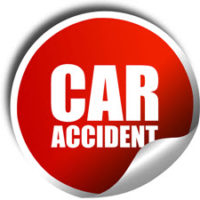New State Law Regulates Rideshare Companies

Rideshare companies like Uber and Lyft provide West Palm Beach residents and tourists with a convenient transportation option. But such services also raised interesting legal questions about who is responsible in case of a car accident, especially for passengers injured while traveling in rideshare vehicles. While Florida is a no-fault state and insurance pays for your expenses up to your policy limit, sometimes insurance coverage is not enough. And until recently, there were no state laws specifically regulating insurance coverage for rideshare drivers.
Accidents Involving Rideshare Vehicles
In March 2017, a BMW struck a rideshare vehicle carrying four passengers head-on at a residential intersection in Miami. The Lyft driver died at the scene of the accident and six others were injured.
In February 2017, an ER physician filed a personal injury lawsuit against Uber and an Uber driver. The physician was visiting Tampa when he was seriously injured in an Uber accident. The physician alleges that the driver’s negligence caused the accident.
In October 2016, an Uber driver carrying one passenger tried to make a U-turn in a St. Petersburg neighborhood but unfortunately pulled into another car’s path. That car struck the rideshare vehicle on the driver’s side. The Uber driver was taken to the hospital with life-threatening injuries and the passenger with serious injuries. Both the driver and passenger in the other vehicle sustained minor injuries.
In all of these cases, the injured rideshare passengers should be entitled to compensation for their damages. But where would this compensation come from?
New State Law
State law requires drivers to carry a minimum of $10,000 in personal injury protection (PIP) insurance. Florida is a no-fault state, which means that your auto insurance company will provide coverage for your medical expenses, lost wages, and other related expenses up to the limit of your policy.
But until recently, Florida did not have any statewide regulations specific to rideshare services. Different municipalities had different laws covering insurance requirements, background checks and other issues affecting rideshare companies, but the geographical variances made it difficult for passengers to know their rights (and for drivers to understand their responsibilities). The new state law prohibits local governments from regulating Uber, Lyft and other rideshare companies and establishes uniform standards.
The new law, which took effect on July 1, sets minimum insurance levels for rideshare companies: $50,000 for death and bodily injury per person, $100,000 for death and bodily injury per accident, and $25,000 for property damage. That coverage can be provided by a driver’s personal plan, through insurance offered by the rideshare company, or a combination of the two.
Reach Out to Us Today
If you have been injured in a car accident involving a rideshare driver, contact a West Palm Beach personal injury attorney at The Pendas Law Firm today for a free consultation. Our experienced attorneys can help you navigate this emerging area of law and help you recover the damages that you deserve.
The Pendas Law Firm also represents clients in the Fort Lauderdale, Orlando, Fort Myers, Miami, Jacksonville, Tampa, Daytona Beach and Bradenton areas.
Resources:
local10.com/news/crime/bmw-that-struck-lyft-drivers-car-in-miami-was-reported-stolen-police-say
wjhg.com/content/news/Florida-Governor-Rick-Scott-signs-UberLyft-bill-into-law-421806483.html
tampabay.com/news/publicsafety/accidents/uber-crash-in-st-petersburg-leaves-driver-and-passenger-with-serious/2299696
fox13news.com/news/local-news/234184871-story






